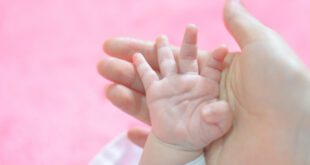A child of around four came up to Vu Hung while he was walking on the street, spat on his shoes and ran away laughing.
The child’s mother hurried over to Hung and apologized, telling him it did not know “right from wrong” yet.
She then left as he stood there, baffled.
It was not the first time Hung, 34, had been left “dumbfounded.”
Not long ago he was waiting in line to buy something when two kids behind him started to joke around and occasionally hit him with their elbows.
He did not say anything the first few times, but when they continued to bump into him, he turned around and told them to cut it out.
The mother of the two came to their defense at this: “What’s the big deal? They are still children and don’t know anything yet. You should not shout at them.”
He kept silent, not wanting to create a scene in public by arguing with a woman.
Tuyet Mai, his wife, intervened at this point.
Mai approached the woman from behind and put her elbow on the other woman’s back.
She said: “Tell me if this does not make you uncomfortable. If you cannot teach your kids, I’ll teach them for you.”
Whether the children were jostling her husband on purpose or by accident, their parents should take responsibility for it and tell them to apologize if their actions caused discomfort, she said.
The woman said her children are still too young to know right from wrong, and grownups should show tolerance.
Mai would have none of that: “I’m not related to you or know you, and so I don’t have the responsibility to tolerate your kids’ bad behavior. You, as a parent, should take responsibility for your children’s actions.”
Realizing Mai was not planning to relent, the woman reluctantly told her children to apologize.
Many similar tales about kids’ bad behavior in public have been floating around on social media lately. Even if their actions were not deliberate, their parents’ justification that the”kids are still too young to understand” only serves to infuriate others.
Such excuses are unacceptable, Dr Vu Thu Huong, a former lecturer in the Hanoi National University of Education’s primary education department, says.
“This will result in kids growing up thinking it they can annoy or even hurt people and face no consequences.”
She agrees that people should not have to suffer because of the behavior of others’ children.
For parents to claim children are still too young as an excuse for failing to teach their offspring is to abdicate responsibility, she says.
“Learning the notion of ‘can – can’t – should’ is the foundation upon which all other knowledge is built. What can be done, what should be avoided, and what obligations exist.”
Young children need to be taught these rules so that they can have a healthy relationship with others and avoid potentially dangerous situations, she adds.
Trinh Trung Hoa, a psychologist, agrees that parents’ behaviors have a significant impact on their children’s beliefs and actions and that the excuse “children don’t know anything yet” is particularly detrimental and just an excuse for poor parenting.
Many parents believe that minor mishaps are simply “unfortunate happenings” and think that only significant ones such as injuring others and damaging property need to be punished, he says.
Ignoring their misbehavior and failing to correct it is the surest way to spoil a child, he says.
One day when Huy Khanh, seven, went to a friend’s house to play, the latter was holding a hot drink in his hands. He startled his friend, who spilled the drink on himself, but luckily was not badly scalded.
Khanh’s parents had to call the other boy’s parents to apologize. The latter brushed it aside saying the children had just been fooling around and were too young to understand the consequences of their actions.
Huong says this is no laughing matter. Kids can fool around, but not in a way that causes distress or harm to others.
“Parents can put up with their children’s bothersome behaviors, but should not expect others to do the same.”
The repercussions of being a nuisance to others have a direct bearing on children’s sense of self-worth as adults, she says, explaining that no one will treat a nuisance child with any respect, and may even be disdainful or contemptuous, causing them to lose self-esteem.
Experts say children should be kept at home and away from public places until they learn to recognize the rights of others and keep their voices down.
When kids play, adults must exercise control and supervision to ensure, they say.
The first step in correcting a child’s bad behavior is teaching them to apologize, and the second is managing the situation firmly so that the youngster repents and does not repeat the action, they say.
Parents should enforce clear rules while taking their children out in public, and instill an early understanding of “can-can’t-must,” they add.
Hoa says parents need to know that love and discipline are two different things.
Children could become spiteful if they know they are being pampered, he warns.
“Parents are responsible for providing their children with a clear framework for comprehending good and bad behaviors.”
- Reduce Hair Loss with PURA D’OR Gold Label Shampoo
- Castor Oil Has Made a “Huge” Difference With Hair and Brow Growth
- Excessive hair loss in men: Signs of illness that cannot be subjective
- Dịch Vụ SEO Website ở Los Angeles, CA: đưa trang web doanh nghiệp bạn lên top Google
- Nails Salon Sierra Madre
 VnExpress News The News Gateway of Vietnam
VnExpress News The News Gateway of Vietnam
